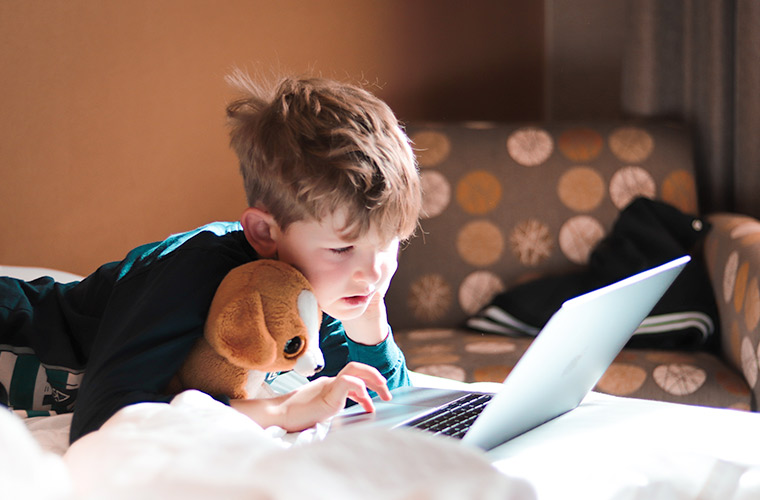A hammer can be used to build, but also to destroy. Likewise, the tool of media can encourage positive behavior by inspiring and entertaining us. Unfortunately, media can also act to confuse, harm, or distract us. What makes the difference for children is having a parent who enforces the guidelines they need to have a clean bill of media health. Here are ten ways for approaching online media monitoring in your child’s life.
1. Be proactive; take a look.
Your children’s iPod and iTunes library and Pandora or Spotify accounts tell a huge story; check out what they listen to. Make yourself familiar with the software and make yourself the program administrator.
2. Listen for what is popular.
If you know what’s in (music, movies, games, or TV), it is easier to set a standard on what your children should or shouldn’t be filling their time with.
3. Make friends with your child.
“Friend” your child on Facebook and “follow” them on Twitter, Instagram, and Snapchat. There is no privacy on the information superhighway, so it is important to see what your children are putting out there. If anyone should have access to your child’s online activity, it’s you.
4. Consider all electronics.
The boom of iPads, laptops, smartphones, and the like have made it hard to monitor the content of media on all devices. Talk with your service provider for cable and internet parental restrictions. Also, talk with your cell phone provider to see if you can place a filter on smartphone internet use.
5. Be open about your own media habits.
Make sure your children can see what you’re up to—what you watch, what you listen to, who you chat with, where you browse, what magazines you read, and what movies you rent. Lead by example.
6. Get to know your children’s friends and their friends’ parents.
Make sure your children’s friend’s parents know your family’s media standards. Communication with other parents is key if you want to have your standards met even when your child isn’t in your home.
7. Timing is everything.
There are so many messages coming at children—and in many forms. Make sure that your children are not spending their life away in media. Encourage them to spend time with their friends and family or have quality “me time” without a screen in front of them.
8. Make their bedroom a sanctuary, not a theater.
“I can’t control what they’re watching” is no longer an issue when screen time doesn’t happen behind closed doors. Leave the TV watching for the living room and the peace and relaxation for their bedrooms.
9. Maintain a responsible mindset.
You are the parent, and you are responsible to help your children stay on track. If you communicate the importance of why you do what you do and consistently follow through, they will be less likely to contest your rules.
10. The word OPEN is the most important word in this list.
Open communication, open door, open for conversation, open for questions, open for respect, open for review.
Thinking about whether it’s time to allow your kids to stay home alone? First, find your state’s home alone rules here.



